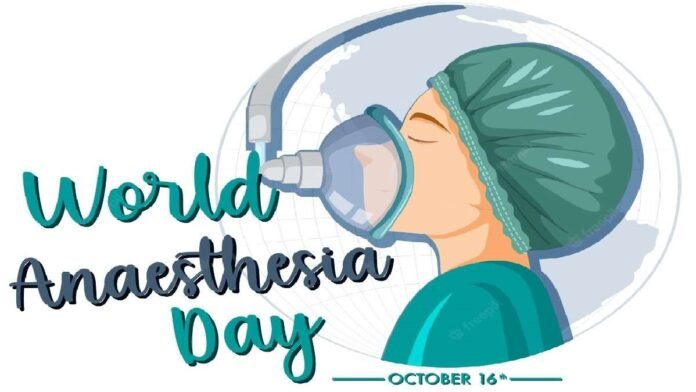
Vaidehi Bhargava
World Anesthesiology Day, celebrated every year on October 16, honors the vital role of anesthesiologists and the advancements in anesthesia that have transformed modern medicine. This day marks the anniversary of the first successful public demonstration of ether anesthesia in 1846 by Dr. William T.G. Morton in Boston, USA. This event revolutionized surgery and pain management, laying the foundation for safe and painless medical procedures as we know them today.
Anesthesia is a critical part of modern healthcare. It involves the use of medicines to prevent pain during surgeries and medical procedures, allowing doctors to perform complex operations without causing discomfort to the patient. There are three main types of anesthesia: general anesthesia, which makes the patient unconscious; regional anesthesia, which numbs a specific part of the body; and local anesthesia, which numbs a small area. Each type is chosen based on the patient’s condition and the nature of the procedure.
The role of an anesthesiologist extends far beyond just “putting people to sleep.” These highly trained doctors are responsible for managing a patient’s vital functions—such as heart rate, breathing, and blood pressure—during surgery, ensuring that the patient is safe and stable throughout the procedure. They also provide pain relief before, during, and after surgery, making recovery more comfortable.
World Anesthesiology Day serves as an opportunity to raise awareness about the importance of safe anesthesia practices and to highlight the contributions of anesthesiologists to global healthcare. Without effective anesthesia, many of the medical advancements we take for granted today—such as organ transplants, heart surgeries, and childbirth procedures—would not be possible.
This day also promotes ongoing education and research in the field of anesthesiology. Continuous improvements in anesthesia techniques and patient care have led to safer surgeries and fewer complications. However, there is still work to be done. In many parts of the world, access to safe anesthesia remains limited, leading to unnecessary pain and suffering. World Anesthesiology Day reminds us of the need for global efforts to ensure that every patient, no matter where they live, has access to safe anesthesia during medical procedures.
In conclusion, World Anesthesiology Day is a celebration of the remarkable progress made in the field of anesthesia and a recognition of the dedicated professionals who ensure that patients receive safe, effective care during surgery.

